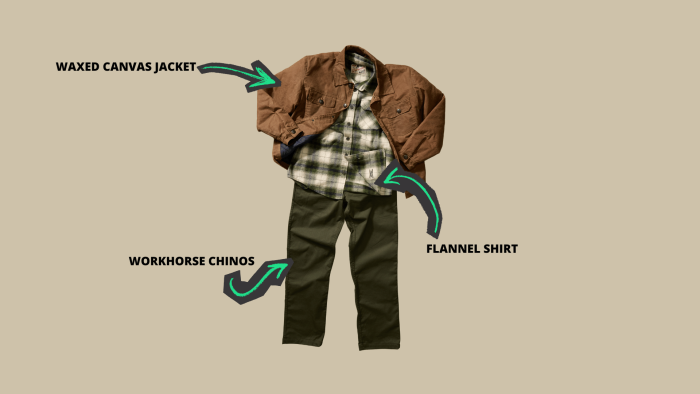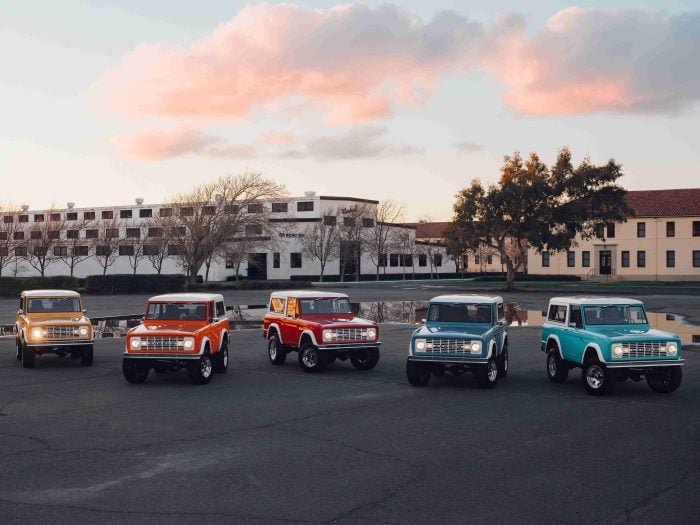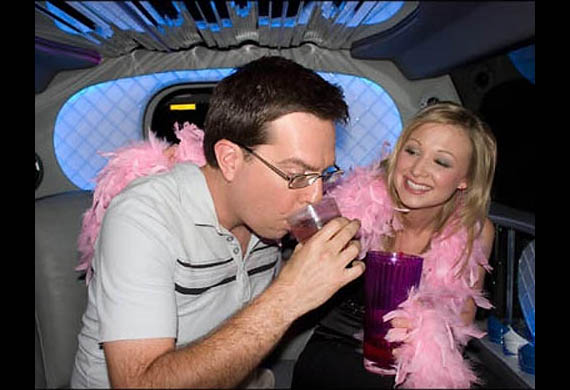
Image from The Hangover courtesy of Film Drunk
It’s something we humans have been doing for ages, and it goes by many names: getting inebriated, plastered, wasted, housed, trashed, canned, trash-canned, and of course drunk, or, as it’s often spelled in text messages, durnkk. It turns out the most correct term though is “intoxication”, as booze—any kind, really, not just Smirinoff Ice—is literally toxic.
Alcohol’s active ingredient is ethanol, a toxin that produces effects in your body that can be good, not good, and very very bad, and usually in that order. If you’re like us, you wake up after a big night and think “What the F just happened?” We understand you’re probably referring to why there’s a road cone in your bed and your foot is in a bag of Lay’s KC Masterpiece, but for the sake of argument, let’s assume you actually mean “WTF just happened inside my brain on a molecular level with regard to the consumption of ethanol-based alcohol”.
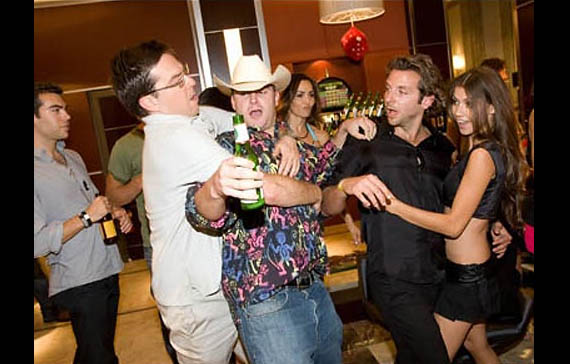
Indeed it all starts with ethanol. Well, technically it starts with a 30-pack purchased at the Arco, but ethanol is where things start to get screwy. As you drink, ethanol is absorbed into your blood stream and goes to work on your brain. Through a variety of chemical interactions that would require many more pages and nearly $150,000 worth of PhD to explain, the ethanol reduces the effect of an excitatory neurotransmitter known as glutamate. If you went cross-eyed reading “excitatory neurotransmitter”, don’t worry. That’s normal.
In layman’s terms, glutamate works to keep your brain up to speed: maintaining alertness, reactions, and it turns out, memory-making. When ethanol shows up and punches glutamate in the face, those things are adversely affected, resulting in subdued coordination, slurred speech, pants removal, etc. Moreover, the ethanol works on parts of the brain associated with planning, resulting in impaired decisions, such as a thirty-five dollar order at Del Taco.
Now, we can all agree alcohol in moderate doses is a good thing. It’s a relaxant, and can produce feelings of euphoria, reduced inhibition, and a perceived enhancement of dance moves and joke telling, all of which are big positives for the most part.

But alcohol is a terribly fickle mistress. There’s a fine line to be walked when it comes to drinking, and if it’s crossed, it quickly goes from The Good to The Bad, and then on to The Ugly. Literally.
You see, some of that glutamate-punching goes down in the parts of your brain that control judgment and pleasure-seeking. This is where excess drinking leads to the beer-goggle effect, often referred to later as “regret”. As your cognitive ability decreases and your pleasure-seeking increases, there comes a point where your brain declares itself King of Awesometime and Mayor of Pleasuretown, and decides that the woman/manatee sitting at the bar with the apple martini will do admirably. Luckily for you, ethanol has already had its way with the memory centers of your brain, so you won’t recall having your way with sea beastie. It’s also why in the morning, when you put your brain in front of the panel and ask it what in Jesus H. Fuckery it was thinking, it answers “I seriously have no idea.”
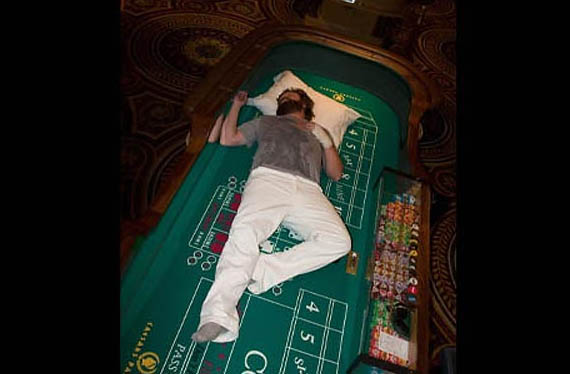
And lastly, there’s the aftermath, and we’re not talking about an awkward breakfast. Alcohol dehydrates you. This ain’t such a bad thing when you’re drinking, but it turns out to be a face-melting bitch come morning. Dehydration, coupled with hypoglycemia (low blood sugar), a vitamin B12 deficiency, and acetaldehyde toxins leftover from metabolizing that booze likely all have a hand in making you want to beg for the sweet embrace of death rather than endure another moment of “veisalgia”: also known as a hangover.
So there you have it, the biological effects of your Saturday night. On a parting note, try this next time you’re hammered… right before bed, pound a pint glass of water, no ice. Ideally make it two. Your hangover will be greatly diminished, if not absent. Thanks us later.
Images from The Hangover courtesy of Film Drunk.

